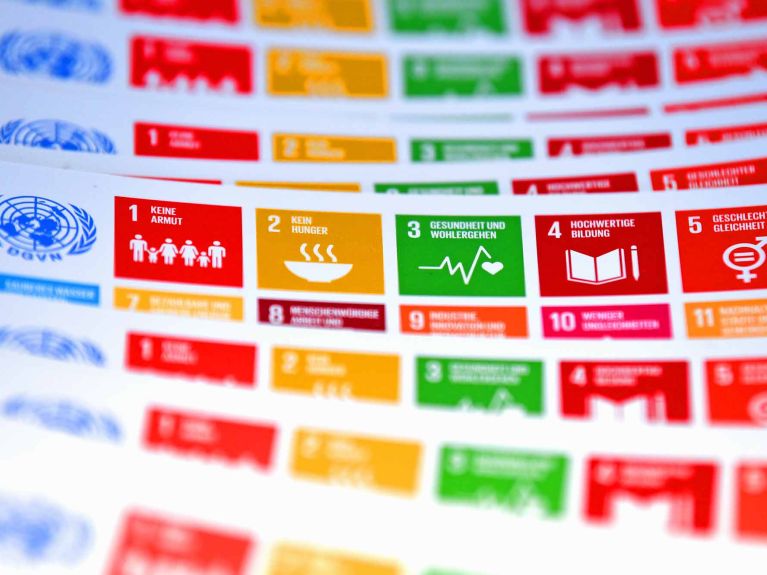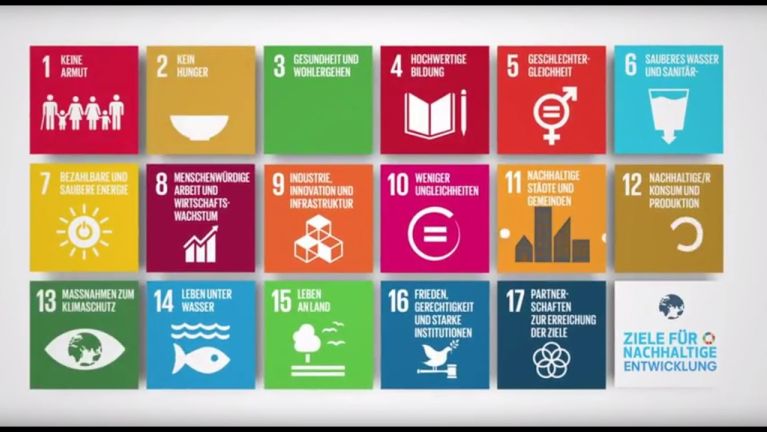Standing up for sustainability around the world
Germany’s development policy is guided by the United Nations Agenda 2030. Here are three questions and answers about it.

What are the goals of Germany’s sustainability strategy?
High quality education, Climate protection,Gender quality.The goals of Agenda 2030 establish the framework for a sustainable future around the world. Germany first adopted a sustainability strategy in 2002, and since 2016 the strategy has been guided by these goals which are defined by the United Nations. The Federal Government is convinced that global challenges can only be overcome by working together.
Dieses YouTube-Video kann in einem neuen Tab abgespielt werden
YouTube öffnenThird party content
We use YouTube to embed content that may collect data about your activity. Please review the details and accept the service to see this content.
Open consent formHow successful is the Sustainability Strategy?
There certainly have been some successes, both in Germany and around the world. For example, renewable energy now accounts for more of the electricity used in Germany. Around the world, access has improved to safely administered drinking water supplies, and women are better represented in senior positions. Yet major challenges persist and some of the progress already made has been put at risk by the pandemic. The number of people suffering from food shortages around the world has risen, for instance. As Federal Chancellor Angela Merkel wrote in her foreword to the 2021 expansion of the sustainability strategy, “This is why the Federal Government intends to accelerate along the way towards sustainability, both at home and in international partnerships.” According to Federal Chancellor Olaf Scholz, “Germany’s transformation into a sustainable society is the best response to the global climate, energy and raw materials crisis which we are currently facing. For this, politicians, businesses and society will need to join forces.
Who is working to deliver the strategy?
Sustainability affects us all. That’s why is isn’t just politicians who are involved, but also businesses, scientists, academics, associations, charities, organisations and consumers. The Council for Sustainable Development advises the Federal Government and facilitates dialogue between all involved. Imme Scholz is the Deputy Chair of the Council. Against the background of the pandemic, Scholz says, “Germany’s approach of conducting global structural politics and thereby shaping the wider international political, regulatory and economic environment so as to promote sustainable development is both appropriate and necessary.” Professor Katrin Böning-Gaese is a member of the council. Her priorities include ensuring that biodiversity features more strongly in the debate around sustainability. “Biodiversity is the very basis of our existence, so the topic must be at the centre of political and social action.”



